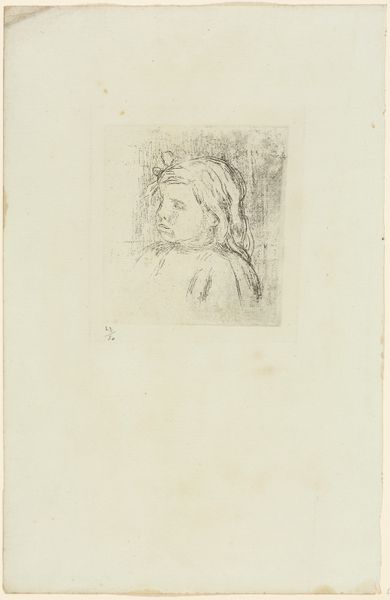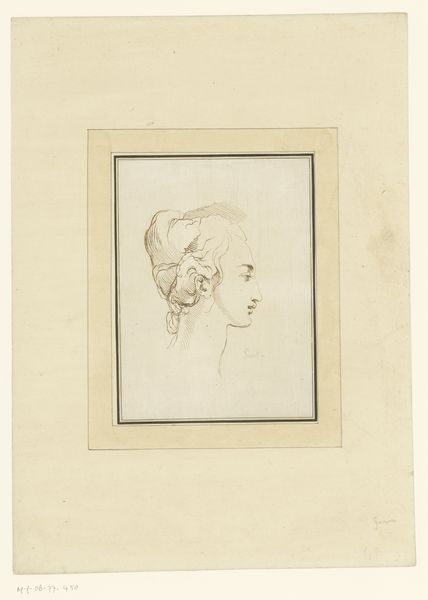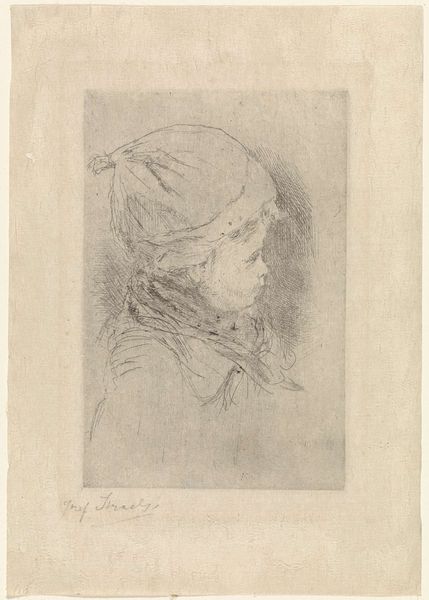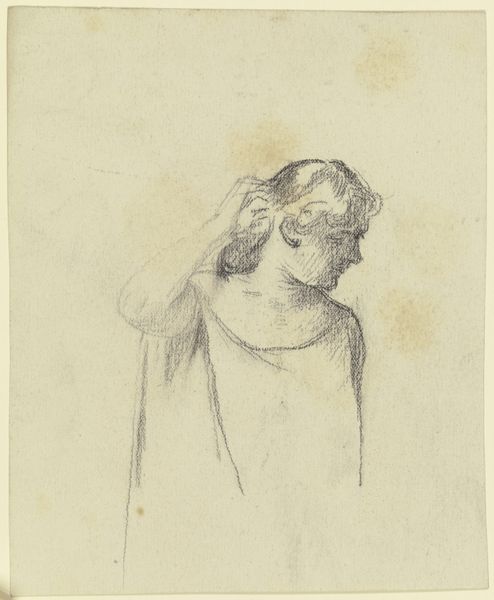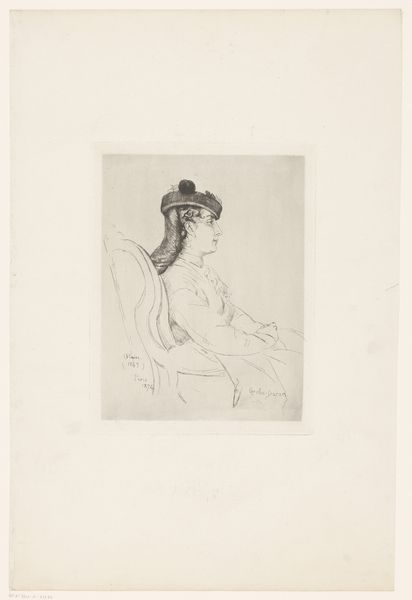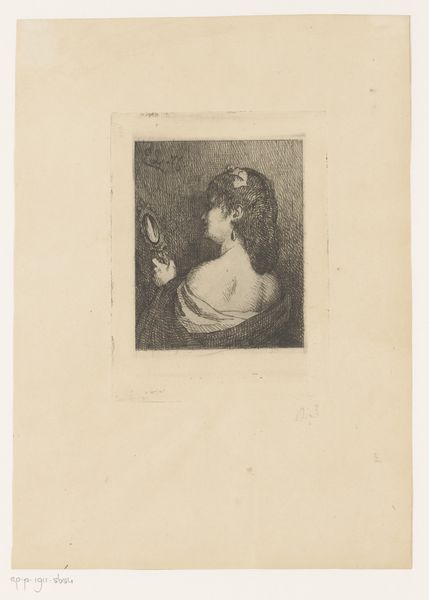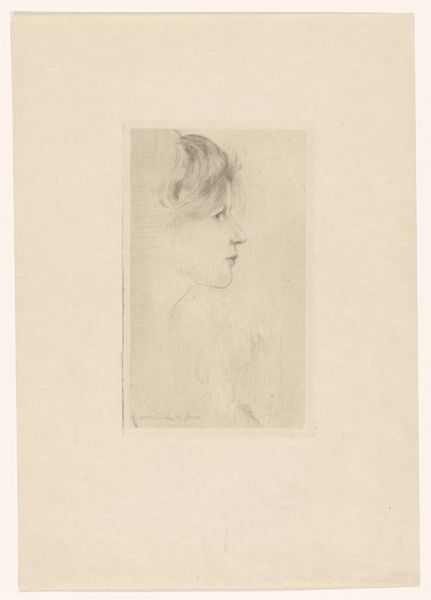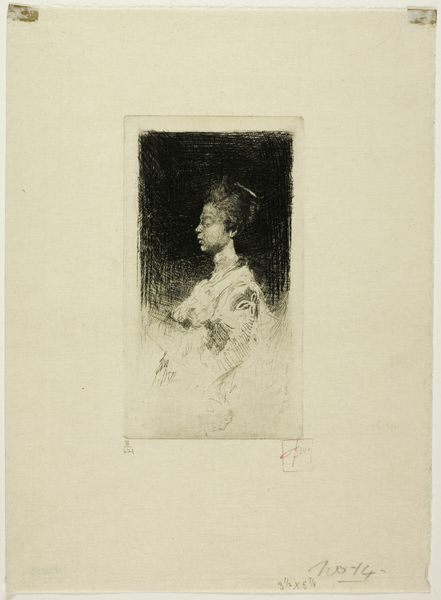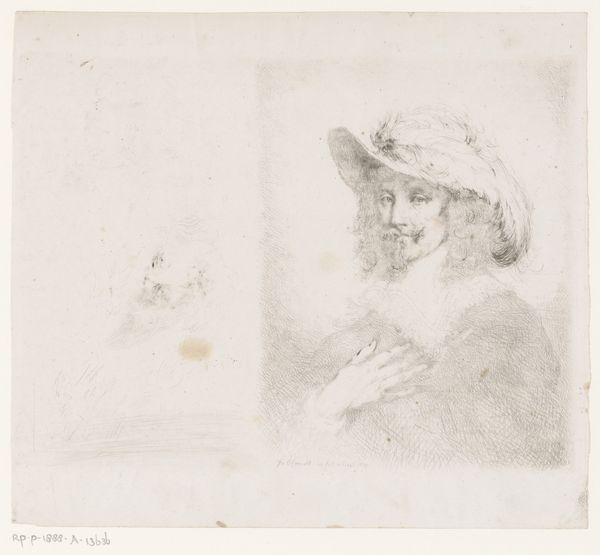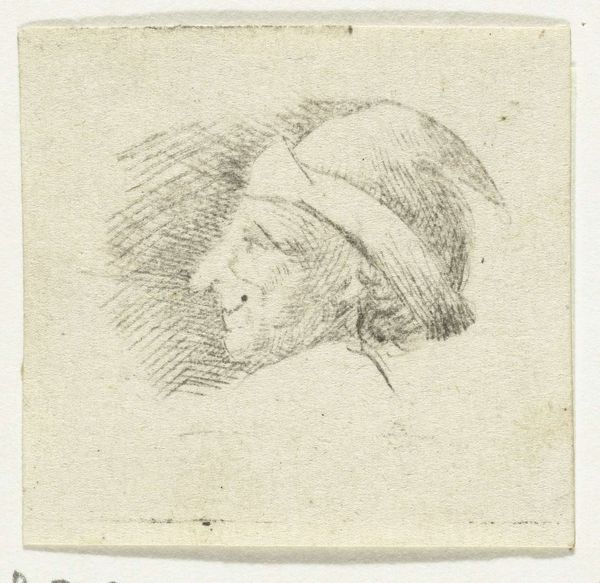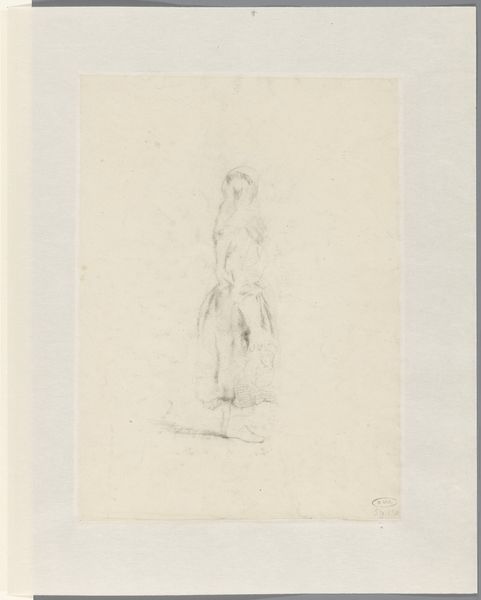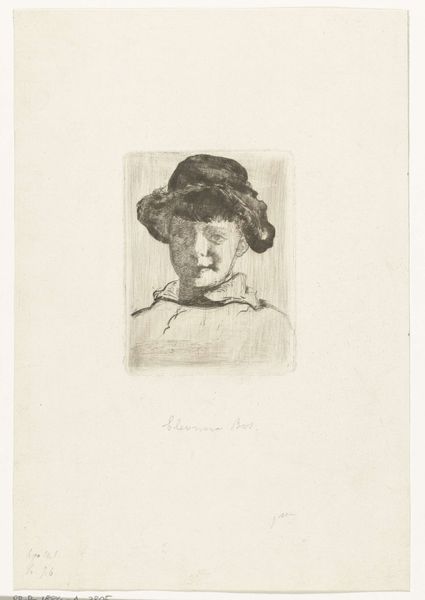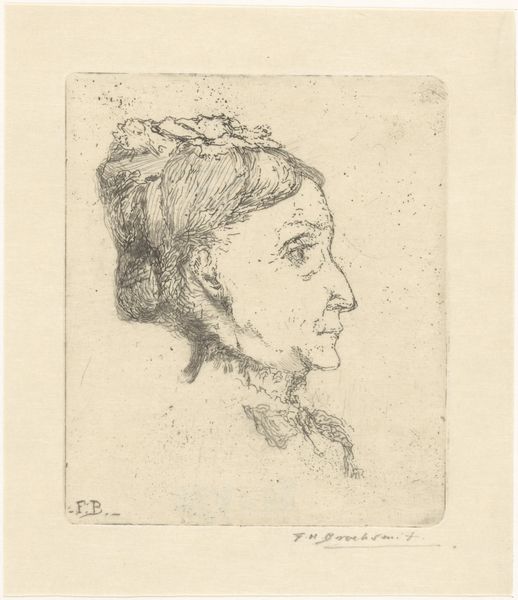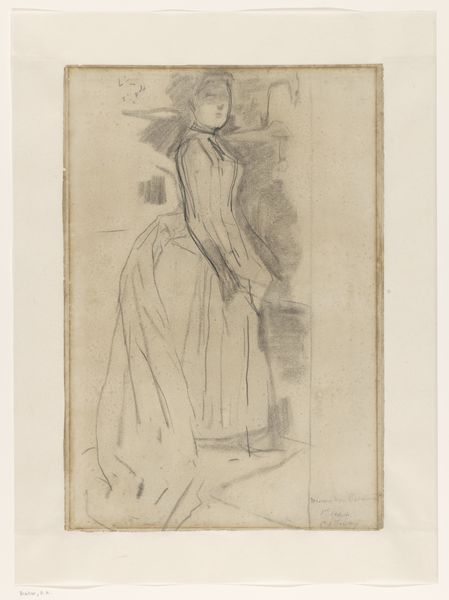
drawing, paper, pencil
#
portrait
#
pencil drawn
#
drawing
#
light pencil work
#
pencil sketch
#
paper
#
pencil
#
sketchbook drawing
#
pencil work
#
rococo
Dimensions: height 124 mm, width 106 mm
Copyright: Rijks Museum: Open Domain
Hieronymus van der Mij rendered this head of an elegant shepherdess with graphite on paper sometime in the eighteenth century. The sketch depicts a popular subject in Rococo art: the idealized peasant. The “shepherdess” refers less to rural labor than to an aristocratic fantasy of pastoral life. The elite in countries like the Netherlands and France had grown weary of the formal restrictions of court life, embracing an aesthetic of cultivated leisure. Rococo portraiture often featured women dressed as milkmaids, men posing as farmers. In truth, these sitters enjoyed the privileges of the aristocracy, which were built on the labor of real peasants. Van der Mij, who was the son of a painter and primarily a portraitist of wealthy merchants, was part of an artistic and economic system that upheld a rigid social hierarchy. Understanding the ways that social structures shaped artistic production is crucial to art history. By consulting sources such as economic data, fashion trends, and political theory, we can more fully understand this drawing today.
Comments
No comments
Be the first to comment and join the conversation on the ultimate creative platform.
